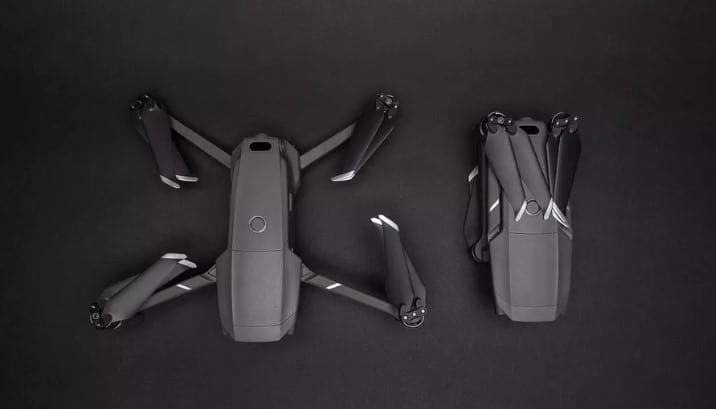
Chinese drone juggernaut DJI has made substantial adjustments to pricing and availability on its product lineup in response to increased tariffs on Chinese goods imposed by the Trump administration. The price hikes were first reported by DroneDJ earlier today, and they represent perhaps the first reported case of a Chinese gadget manufacturer, or a brand that manufactures predominantly in China, passing the cost of Trump’s tariffs onto US consumers.
If you go looking for certain DJI products through the company’s US store, you’ll find price increases across the Mavic 2 line by about 13 percent, which is slightly under the 15 percent figure President Donald Trump announced on Twitter late last month and that went into effect over the weekend.
“Due to the recent increase in tariffs, DJI has updated pricing for its products in the United States. We take many factors into account when recommending retail prices in different countries around the world, including tariff applications, tax rates and currency exchange fluctuations,” a DJI spokesperson tells The Verge. “We follow all applicable laws and regulations in the countries where we operate and will continue to work toward making drone and handheld products more accessible to the world while supporting the many existing customers that use DJI technology daily.”
A number of large companies in the electronics industry have openly expressed concern over the US-China trade war and how it may negatively impact business, and some have threatened to do what DJI has done here. Sony teamed up with Microsoft and Nintendo earlier this year to issue a letter of warning the US Trade Representative’s Office that the tariffs could result in higher prices for US consumers to the tune of $840 million, as well as risks to as many as 200,000 US jobs.
Some prominently affected companies, like Apple, have decided to so far eat the cost of tariffs on products like laptop chargers and iPhone cables, although CEO Tim Cook is reportedly active in discussions with President Trump with the intention of deescalating the trade war. Although Trump has increased the average tariff on Chinese imports to about 21 percent, ensnaring hundreds of billions in Chinese goods, data shows the impact is mostly being felt by US customers, employees, and businesses. According to a The New York Times report published today, manufacturing activity in the US falling for the first time since 2016.
The Mavic 2 Pro is now $1,729, up from $1,499. The DJI Mavic Air in Arctic White, the only available color option that is not out of stock, now costs $919, up from $799. On Amazon, the same products can be purchased at the lower, pre-tariff prices. DroneDJ notes that most of the Mavic 2 models became available again only this past weekend, timed to the September 1st tariffs going into effect, after weeks of being unavailable.
Switching your location using DJI’s built-in localization tool in the upper-righthand corner of its website will reveal the price differences based on region. In Canada, for instance, the Mavic 2 Pro remains $1,499. For EU countries like France and Germany, the price in Euros is in line with the old, pre-tariff USD pricing. For specialty products like the professional-grade Inspire and “industrial” purpose Matrice 600 Pro, the prices appear to be up by nearly 17 and 14 percent, respectively, compared to pricing in Canada.
DJI has also removed some products from the store, although it’s unclear whether that’s tariff-related or due to inventory or product roadmap decisions. For instance, you can no longer buy the DJI Spark or Phantom 4 in the US from DJI directly, although the company is still selling accessories for both product lineups.
The same appears to be true in most other countries and regions, although non-US regions will still display product listings with pricing for the Phantom 4 in some cases before the store informs customers that the product in question is no longer available in that region. We’ve reached out to DJI for further comment on whether product availability for the Phantom 4 and Spark have been affected by the Trump’s administration’s ongoing trade war.